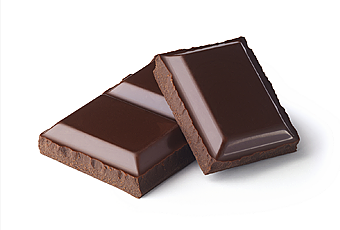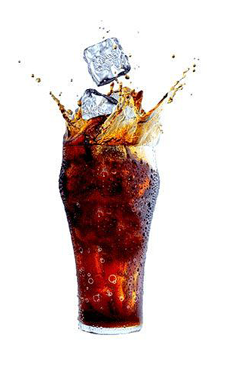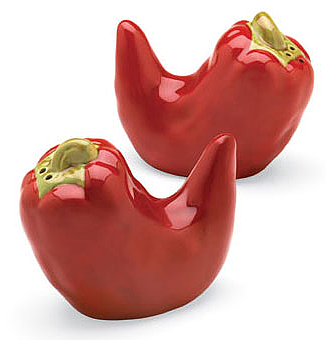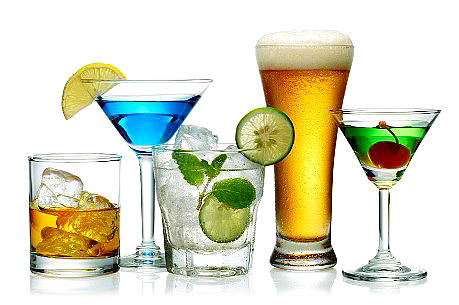Popular Articles
- 10 Natural Sleep Supplements
- GABA and Insomnia
- Moderex Supplement Facts
- Does Bad Sleep Damage Your Heart?
- 8 Foods That Help With Insomnia and Anxiety
- Sleeping Remedy by Natrol
- Popular Sleep and Anxiety Drugs May Be Linked to Dementia
- Home Remedies for Sleeplessness
- Chamomile Tea for Insomnia
- Is Quietude Safe? Find out.
 Avoid These Foods and You Will Sleep BetterIn This Article
Foods can help you sleep or keep you up late at night. Foods that make you stay awake at night can make you gain excessive weight by encouraging a habit of nighttime binging and daytime overeating as well. In addition, studies have shown that sleep deprivation can harm the body in different ways. Therefore, if you suffer from insomnia, then you should consider making dietary changes to help your body learn to shut down at night. This article discusses the major foods (and eating habits) you should avoid to sleep better at night.
Sleep and foods have a rather curious interplay. While some foods can promote sleep, others may contribute to insomnia. Unfortunately, if your poor dietary choices lead to sleeplessness, there is a very good chance that your insomnia can also perpetuate the same bad choices in food. This quickly leads to a vicious cycle of sleeplessness which is commonly diagnosed as chronic insomnia. Different studies have established that sleep deprivation increases hunger and appetite. Only recently did scientists find an explanation for this strange relationship. Researchers from the University of Chicago noted a key difference between young adults who were only allowed to sleep 4 ½ hours for a night and those who got their normal hours of sleep. The researchers found that in the sleep-deprived participants, the blood levels of a molecule known as 2-arachidonoylglycerol was significantly higher than normal This molecule was shown to be involved in the feeling of enjoyment and reward derived from eating. Therefore, the researchers concluded that 2-arachidonolyglycerol was at least partly responsible for the overeating observed in people who usually do not have sufficient sleep. To further confirm the contribution of this molecule to insomnia-induced overeating, the researchers found that the level of this compound was at its highest during the early afternoon and at its lowest in the middle of the sleep cycle. While this study proves that insomnia can cause overeating, there are other studies that have proven that certain foods can also cause insomnia. The major foods to avoid in order to sleep better are discussed below. 1. Caffeine and 2. ChocolateCaffeine, whether from drinks, pills or chocolate, is one of the causes of insomnia. Caffeine is a psychoactive stimulant. It keeps the central nervous system awake by stimulating the release of excitatory neurotransmitters.
Experts advise that you should not take caffeine products at least 8 hours before going to bed. However, some contend that the stimulant effect of caffeine is still present after 12 hours of consuming it. Therefore, if you must take caffeine, do it in the morning and never in the evening. Besides the stimulant effects of caffeine, the compound is also a natural diuretic. This means that caffeine increases the frequency of urination. Therefore, taking caffeine at night will make you repeatedly get up in the night to urinate. Besides caffeine, chocolate contains other stimulants like sugar, tyramine, and phenylethylamine. 3. Simple Sugar and Sweeteners
Because the brain consumes a lot of glucose, a high blood glucose level can keep the brain ticking long after it should have powered down. Sugary foods to avoid range from soda drinks to refined carbohydrates. Any food with added high fructose corn syrup, or other commercial simple sugars, can increase the body’s energy level and fuel increased brain activity. To avoid the health problems associated with sugars, manufacturers sometimes substitute them with artificial sweeteners. However, artificial sweeteners are not safer. In fact, they can also disturb sleep. Other food additives that may disrupt sleep include preservatives, artificial colors, artificial flavors, texture enhancers, and synthetic antioxidants. A common food additive that is known to cause insomnia is MSG (monosodium glutamate). This compound is a common ingredient used in preparing Chinese foods as well as refined, packaged foods. However, it is a potent stimulant and can keep some people awake late into the night. 4. Fats and 5. High-Protein FoodsFatty foods take longer for the body to digest. And when the body is actively digesting food, it cannot power down. High-protein foods also affect the digestive process and sleep in a similar way. In addition, protein-rich foods release amino acids into the blood. When amino acids such as tyrosine flood the body, they are quickly used to synthesize stimulants such as the excitatory neurotransmitters, epinephrine and norepinephrine, and thermogenic thyroid hormones. Excitatory neurotransmitters keep the brain active and thyroid hormones increase the body’s metabolic rate. Both effects disrupt sleep. Furthermore, by suddenly increasing the number of amino acids in the body, high-protein foods reduce the amount of tryptophan reaching the brain. Tryptophan is the most important amino acid in the sleep process. It is used to synthesize niacin (a B vitamin), serotonin (a neurotransmitter) and melatonin (a hormone that regulates the circadian cycle), all of which promote sleep. Flooding the body with multiple amino acids reduces the odds of tryptophan crossing the blood-brain barrier. This is because it shares the same transport mechanism with some of the other amino acids.
|
| Next Article: What Causes Sleep Problems |





 However, the effect of caffeine can last beyond the period when you need it. This means that you should restrict your caffeine intake and avoid taking caffeinated drinks and foods close to bedtime.
However, the effect of caffeine can last beyond the period when you need it. This means that you should restrict your caffeine intake and avoid taking caffeinated drinks and foods close to bedtime. Foods containing simple sugar can cause a big spike in blood glucose levels. This makes excess energy available for the body which can cause restlessness.
Foods containing simple sugar can cause a big spike in blood glucose levels. This makes excess energy available for the body which can cause restlessness. 6. Spicy Foods
6. Spicy Foods